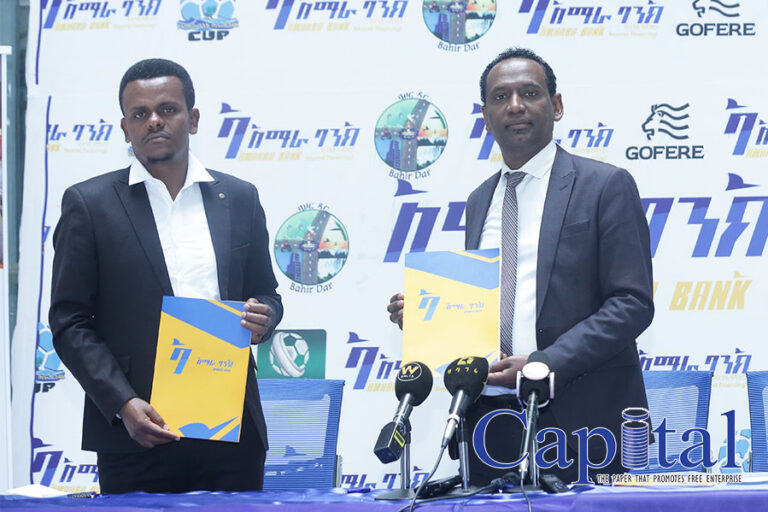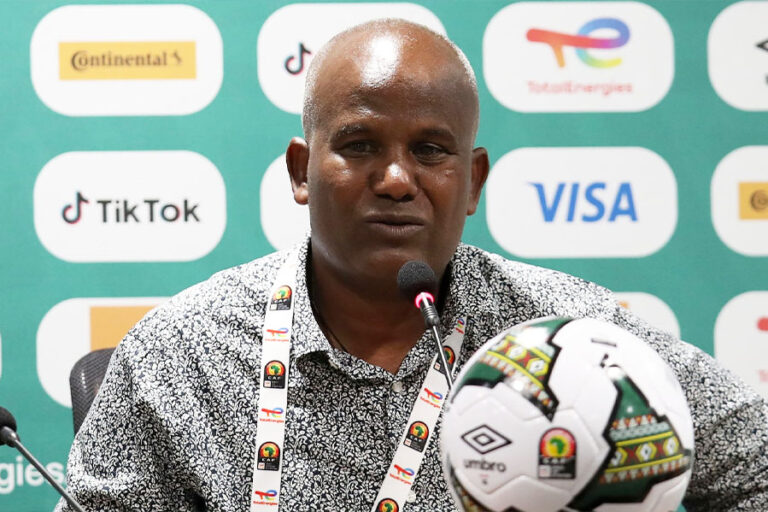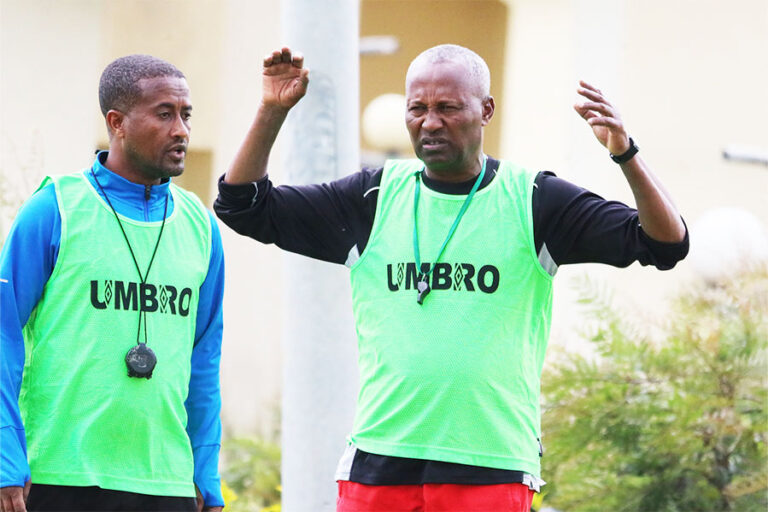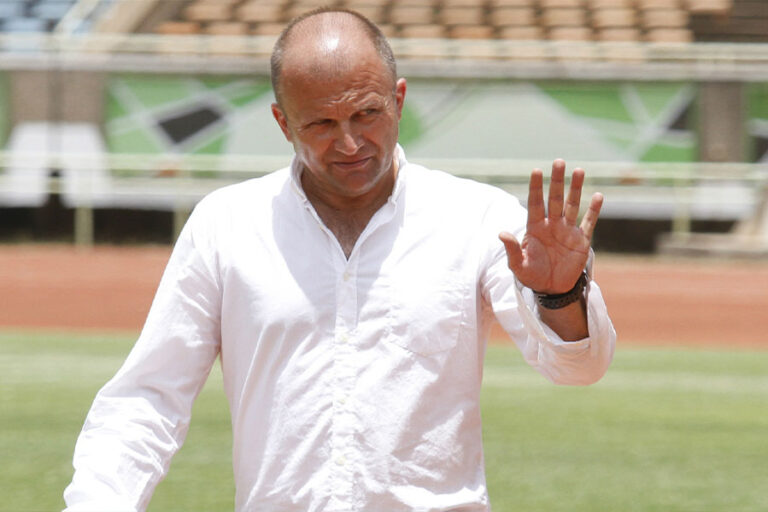Amhara Bank which recently joined the financial market with its ‘Beyond Financing’ motto has become a title sponsor for a football competition that will be hosted at Bahir Dar.
According to the bank, the competition which will be held for the first time will have an immense value to the society.
The maiden tournament which is called ‘Amhara Bank- Tanna Cup’ was organized in collaboration with the Youth and Sport Division of the city and Gofere Sport Events and will host clubs from the Premier League and other African countries.
The bank assured that it will continue to work as per its motto in addition to supporting social activities besides its banking operation.
Amhara Bank commenced its operation in June this year with 6.5 billion birr in subscribed capital. Currently, it operates 110 branches that will soon reach 150 by October 10, 2022.
Amhara Bank sponsors inaugural football competition
Wubetu leads Ethiopia to the 3rd edition CHAN Cup final
Ethiopia booked its place at CHAN cup final third edition after an aggregate victory over rival Rwanda. Algeria will host the 2023 African Nations Championship (CHAN) finals in January.
Thanks to Walia Ibex’s super striker Dawa Hutessa’s first half splendid goal from a free kick, Ethiopia joined the 18 Nations exclusive party in Algeria after an aggregate 1-0 win over Rwanda.
The return leg in Rwanda-Kigali was considered a heavy burden after the two teams shared the spoils with a goalless draw in the first leg in Tanzania’s capital Dar es Salaam. But the second leg in the fully packed Huye stadium turned out in favor of Ethiopia after Dawa Hutessa’s 22nd minute winning goal from a free kick.
In high moral ground for steering Ethiopia back into the African Nations Cup final after eight years, Head Coach Wubetu Abate achieved the unprecedented feat of helping Ethiopia qualify for a back to back CAF and CHAN cup finals.
Though the two key players who played the key roles in helping Ethiopia qualify to the Cup of Nations, Egypt based Shimeles Bekele and South Africa based Abubaker Naser are absent from the squad, Wubetu did more than a good job bringing new talents to the pool thus a remarkable success for the country’s football.
The victory also avenged Ethiopia’s defeat to Rwanda in the final round of qualifying tie for CHAN 2020. Rwanda progressed to the tournament after beating Ethiopia 2-1 on aggregate.
Algeria will host the 2023 African Nations Championship (CHAN) finals in January bringing together 18 countries in the tournament that is exclusively reserved for players plying their trade in their country’s domestic league, unlike the AFCON tournament which is free for all.
Atenafu Alemu appointed national U-23 Head Coach
Ethiopian Football Federation has appointed Atenafu Alemu as Head Coach for Ethiopian national U-23 team. Hardly a club coach since his sacking from Ethio-Electric Club four years back, Atnafu’s appointment was questioned by many including the Professional Footballers Association.
The former national team assistant Atnafu’s immediate task at hand is to form the Ethiopian U-23 squad ahead of the coming African U-23 first round two leg qualification matches against Democratic Republic Congo. Despite the qualification matches are just two weeks away Atnafu signed a one year contract promising to bring about the best of a squad capable of progressing to the group stage.
In his first interview to the media Atnafu boldly outlined his mission at hand as regards developing young players. “I am here for a mission therefore despite the short period of time for preparation and many of the players already in club preseason campaign; I will give it all my best shot.” Atenafu suggested.
Though Atnafu announced a thirty-two players short list of players called to camp a week before, there are still number of players that are not yet reported to camp. “I believe the clubs are more than willing to send the players for it is all about representing one’s country in such big stage” AtnafuAlemu.
Morocco is the host country of the U23 African Cup of Nations (AFCON) scheduled November 2-26, 2023.
On this day, a year ago: The loss to Ethiopia, Loga’s last supper
On this day, a year ago, ZdravkoLogarusic oversaw his last game as Warriors coach.
Having oversaw an insipid goalless draw with South Africa at the National Sports Stadium four days earlier, the firebrand Croat knew his charges had to beat Ethiopia in their own backyard to revive their World Cup qualifying campaign.
The Warriors arrived at the Bahir Dar Stadium oozing with confidence and burst into the ‘VemberiVemberi’ tune, led by TinoKadewere.
The France-based striker had suffered a knock against BafanaBafana and would not take part in the Ethiopia clash.
Then captain Knowledge Musona and KhamaBilliat led the Warriors attack but barely tested Ethiopia goalkeeper FasilGerbremichael throughout the contest.
The closest the Warriors got to breaking the deadlock was in the 67th minute when Billiat’s pin-point cross found Musona, whose header was well kept out by Gerbremichael.
With the clash headed for a goalless stalemate, which would have been a bad result in the eyes of Warriors fans, things got even worse for Logarusic’s charges.
In the 84th minute, Alec Mudimu was adjudged to have handled Abubeker Nassir’s chip inside the box and the referee awarded Ethiopia a penalty.
Television replays showed that the ball had hit the nomadic defender’s chest but the match official’s decision stood and the penalty was taken after nearly 10 minutes of protest.
AschalewTamene sent Talbert Shumba the wrong way to score the winner from 12 yards.
After the game, ZIFA board member Sugar Chagunda could not wait to fly back to Zimbabwe to call for Logarusic’s sacking.
He penned a letter to Felton Kamambo, advising the then ZIFA president to wield the axe on the beleaguered Croat.
“I couldn’t wait to endure a flight beyond six hours to engage you and pour my heart out. I had to burn the midnight candle to pen this missive after a disappointing loss to the hosts,” wrote Chagunda.
“Admittedly, president, under your astute leadership, the ZIFA board has achieved a lot (off the pitch). I consider myself lucky to have served under your administration because you are an honest man whose love for the game remains undoubted.
“I know how passionate you are about the beautiful game. This is the reason why you prioritised the clearance of the ZIFA debt and freed the association from the painful yoke it had carried for years.
“It is for this reason that I feel pain when our board and your personality is subjected to unfair, unjustified criticism and ridicule from some quarters. To all this, your response has remained the same, ‘let football do the talking.”






